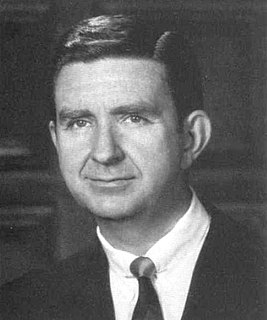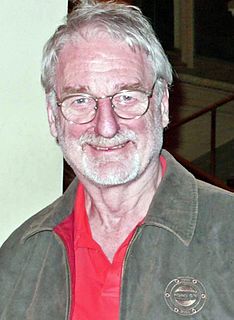A Quote by Tony Buzan
Many of us grow up thinking of mistakes as bad, viewing errors as evidence of fundamental incapacity. This negative thinking pattern can create a self-fulfilling prophecy, which undermines the learning process. To maximize our learning it is essential to ask: "How can we get the most from every mistake we make?"
Related Quotes
The promise of learning is a delusion.... Tomorrow would alter the sense of what had already been learned, that the learning process is extended in this way, so that from this standpoint none of us ever graduates from college, for time is an emulsion, and probably thinking not to grow up is the brightest kind of maturity for us, right now at any rate.
We're not in cultures which support learning; we're in cultures that give us the message consistently: "Don't mess up, don't make mistakes, don't make the boss look bad, don't give us any surprises." So we're asking for a kind of predictability, control, respect, and compliance that has nothing to do with learning.
Our agency, given us through the plan of our Father, is the great alternative to Satan's plan of force. With this sublime gift, we can grow, improve, progress, and seek perfection. Without agency, none of us could grow and develop by learning from our mistakes and errors and those of others.... I do not really think the devil can make us do anything. Certainly he can tempt and he can deceive, but he has no authority over us that we do not give him.
For every mistake that you learn from you will save thousands of similar mistakes in the future, so if you treat mistakes as learning opportunities that yield rapid improvements you should be excited by them. But if you treat them as bad things, you will make yourself and others miserable, and you won't grow.
People who excel at book learning tend to call up from memory what they have learned in order to follow stored instructions. Others who are better at internalized learning use the thoughts that flow from their subconscious. The experienced skier doesn't recite instructions on how to ski and then execute them; rather, he does it well "without thinking," in the same way he breathes without thinking. Understanding these differences is essential.
Learning is not automatic. You do not automatically know how to read because you turn five. Most of us are sensitive to the fact that we still have something to learn at every step of the way. Learning is not automatic. It comes with seeking and searching, with reading and watching, with thinking, praying, and listening.
I believe that our society's "mistake-phobia" is crippling, a problem that begins in most elementary schools, where we learn to learn what we are taught rather than to form our own goals and to figure out how to achieve them. We are fed with facts and tested and those who make the fewest mistakes are considered to be the smart ones, so we learn that it is embarrassing to not know and to make mistakes. Our education system spends virtually no time on how to learn from mistakes, yet this is critical to real learning.
What do you first do when you learn to swim? You make mistakes, do you not? And what happens? You make other mistakes, and when you have made all the mistakes you possibly can without drowning - and some of them many times over - what do you find? That you can swim? Well - life is just the same as learning to swim! Do not be afraid of making mistakes, for there is no other way of learning how to live!
































